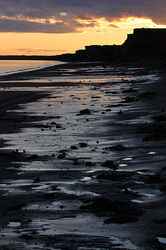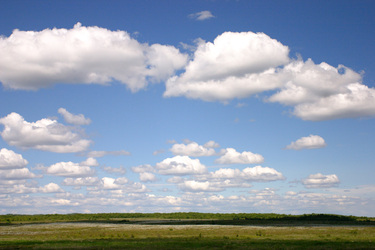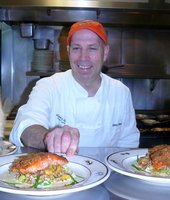

Located on a shoreline of seemingly endless tundra, Alaska's Bristol Bay is home to the world's largest salmon fishery.
A baker's dozen Seattle eateries are featuring Bristol Bay sockeye this week, to call attention to the dangers the fish will face from a proposed open pit mine. Save Bristol Bay's salmon by eating salmon, they say! But a woman in Alaska thinks you should boycott those restaurants.
First, the fish side of the story, told to coincide with Pacific Marine Expo 2009 later this week, the largest commercial marine trade show on the West Coast. Bristol Bay, some 200 miles southwest of Anchorage and surrounded by thousands of square miles of Alaskan tundra, is "home" to a third of the world's salmon: that is, they pass through the bay enroute to their spawning grounds. It's a majestic landscape, inhabited only by a handful of native villages. Except for the salmon fishery, out on the treacherous waters, there's no industry.
Enter the developers in the form of Northern Dynasty, parent company of mining project called the Pebble Partnership. A wealth of minerals lies beneath the tundra, and Pebble wants it. Gold, copper, molybdenum silver, rhenium, palladium. The land was opened to mining in the waning days of the Bush administration, and the project had the enthusiastic support of Alaska's former governess, Sarah Palin. Trouble is, getting at the riches would require a vast open-pit mine, the world's biggest, on the headwaters of Bristol Bay. The pit would measure 15 miles across; the dam to hold back the mine's toxic tailings would be 700 feet high and 4.5 miles across, the world's most massive, bigger than the 3 Rivers dam in China, and built on a seismic fault.
Kevin Davis, the chef at Steelhead Diner and an avid fly fisherman, is alarmed. He's gone to Washington DC to lobby against Pebble Partnership's plans. (Sunday evening he was being interviewed by Q13 News.) Seth Caswell, owner of Emmer & Rye and president of the Seattle Chefs Cooperative, is worried about the threats the mine would post to Alaska's native culture. John Shively, on the other hand, ceo of the Pebble Partnership, says the chefs don't understand the project or appreciate what it could do for the people of the region. Going a step further, Gail Phillips up in Anchorage is outraged by the behavior of the 13 Seattle chefs who are sticking their noses into Alaska's business. Boycott them, she says!
Cornichon agrees. By all means boycott these restaurants. Show 'em who's boss. Seriously, Ms. Phillips, are you nuts? Every single visitor and every single local knows Seattle is famous for salmon. Like it or leave it, salmon is at the heart of Seattle's restaurant economy. Thanks to "activist chefs" like Caswell and Davis, we now get some of that wonderful Alaska fish down here in the Lower 48, and we serve it to visitors from around the world. You should try some.
For the record, here are the restaurants Ms. Phillips would have you boycott:Art of the Table, Chiso, Emmer & Rye, Flying Fish, Persimmon, Ponti Seafood Grill, Rover's, Steelhead Diner, Tilth, Tilikum Place Cafe, Pike Brewing Co., Palace Kitchen and Etta's Seafood.

Leave a comment